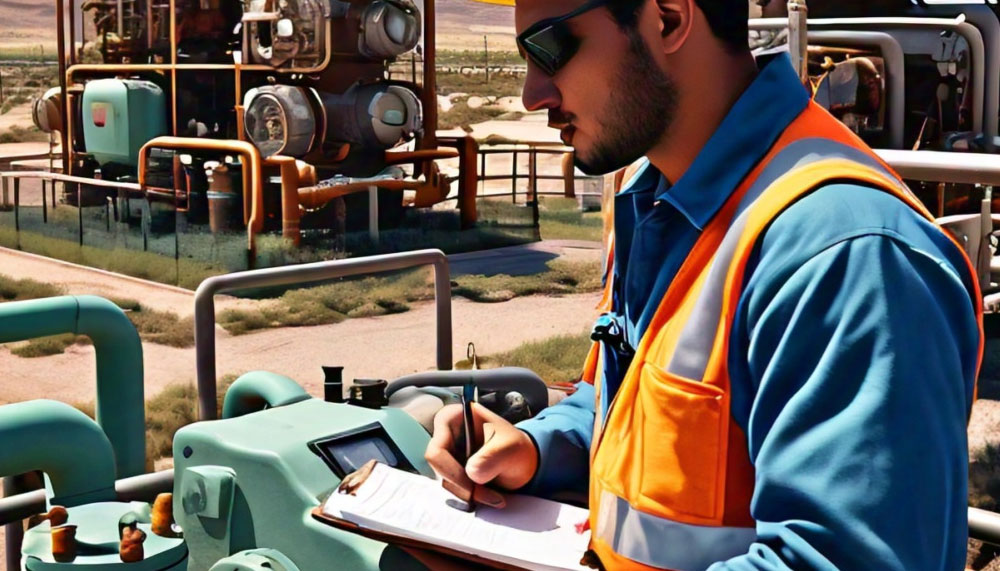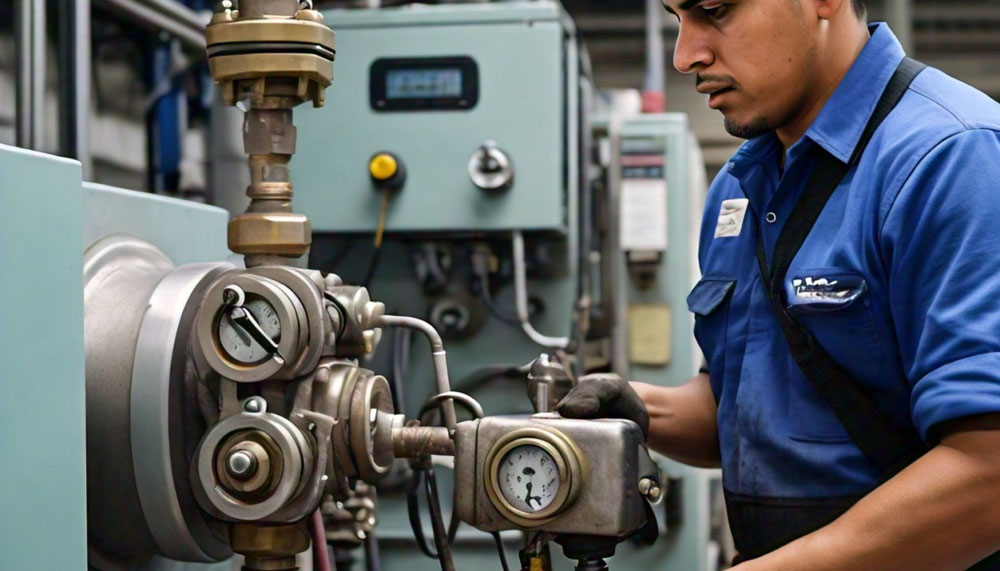It’s a common belief that a college degree is essential for landing a high-paying job. However, several professions offer substantial incomes without requiring higher education. With just a high school diploma or its equivalent, you can pursue these rewarding career paths. Here are some of the top-paying jobs you can secure without a degree, according to insights from the U.S. Career Institute.
1. Construction Site Manager

Annual Salary: $67,200
Construction site managers are tasked with overseeing both small and large construction projects. They ensure each project element progresses smoothly, safely, and efficiently, coordinating workers, materials, and equipment to maintain timelines and quality standards.
Some of the main responsibilities include planning, resource allocation, quality assurance, safety compliance, and record-keeping. Knowledge of the specific type of construction involved is also highly beneficial.
2. Insurance Appraiser

Annual Salary: $67,500
Insurance appraisers assess properties and assets to determine their value for insurance purposes. They conduct inspections, evaluate features, and compare similar properties to ensure accurate valuations for coverage and claims.
Starting a career as an appraiser within the insurance industry can provide valuable insights into asset and property valuation. Experience in fields such as home renovations or construction work can be particularly beneficial, offering knowledge about factors that influence property value, such as materials, design, age, location, and surrounding property values.
3. Mechanics Supervisor

Annual Salary: $68,400
Mechanical supervisors manage the work of mechanics across various sectors. They are responsible for task assignments, ensuring adherence to safety protocols, maintaining inventory of machine parts, and overseeing other operational aspects.
Typically, these supervisors start their careers as technicians, gaining practical experience in the field. Although a bachelor’s degree is not usually required, a thorough understanding of equipment and repair processes is essential for excelling in these supervisory roles.
4. Subway Operator

Annual Salary: $68,800
Subway operators are responsible for transporting passengers on subways, trains, and trams along predefined routes, stopping at designated locations. They maneuver vehicles through subway stations or on elevated tracks to ensure timely and safe transit.
To become a subway operator, a high school diploma is the basic educational requirement. Additionally, taking courses in physical education can help manage the job’s physical demands, while enhancing communication skills can improve interactions with passengers.
5. Occupational Health and Safety Specialist

Annual Salary: $71,400
Occupational health and safety specialists are dedicated to evaluating, managing, and preventing workplace hazards to reduce accidents and injuries. They ensure that various industries comply with safety regulations and standards.
A typical career in this field requires a bachelor’s degree or college diploma. Additionally, certification from the Board of Canadian Registered Safety Professionals (BCRSP) may be necessary to enhance credibility and expertise in occupational health and safety practices.
6. Gas Plant Operator

Annual Salary: $71,700
Gas plant operators are responsible for the safe and efficient operation of equipment in power plants. They record reports, conduct routine checks, and monitor alarms to ensure smooth operations, particularly in the petroleum and natural gas industries.
To qualify for most gas plant operator positions, a high school diploma or GED is required. Additional coursework in math and science can be beneficial. Obtaining the System Operator Certification can also enhance job prospects and opportunities in this field.
7. Agricultural Manager

Annual Salary: $72,100
Agricultural managers oversee the entire crop production process at farms and facilities. Their responsibilities include organizing planting, fertilizing, harvesting, and recruiting labor. They also educate and supervise agricultural workers, ensuring they have the necessary tools and materials for successful farming operations.
While hands-on experience is valuable, having some formal education can be advantageous. Courses in science, business, and finance can provide useful knowledge. Gaining practical experience by working part-time or on a family farm can also be beneficial for aspiring farm managers.
8. Special Effects Technician

Annual Salary: $74,400
Special effects technicians bring imaginative effects to life for movies, animation, TV shows, advertisements, and video games. They utilize artistic skills, computer program expertise, and design knowledge to create stunning visual effects and sets for filming or theater productions.
To pursue a career as a special effects technician, gaining practical experience and a thorough understanding of the industry is crucial. Degree programs focused on film or theater provide the best preparation, equipping you with the necessary skills and knowledge for success in this creative field.
9. Signal and Track Switch Repairer

Annual Salary: $74,800
Signal and track switch repairers play a crucial role in the railway industry, ensuring the operational reliability of signal systems on tracks and in control rooms. Their duties include conducting inspections, troubleshooting issues, and performing maintenance to prevent disruptions and accidents.
To become a signal and track switch repairer, hands-on practice and academic knowledge are essential. Typically, a high school diploma is required, although some positions may demand additional education. Training often comes through apprenticeships with railway companies, providing practical experience and mentorship to develop the necessary skills.
10. Petroleum Pump System Operator

Average Salary: $75,100
Petroleum pump system operators handle the equipment used for gathering, moving, and storing petroleum products. They play a crucial role across different segments of the oil and gas sector.
To start a career as a Petroleum Pump System Operator, a high school diploma is necessary, along with at least a year of training. Nowadays, many companies in the Gulf Coast Region prefer candidates to have an associate’s degree in Process Technology.
11. Non-Retail Sales Supervisor

Average Salary: $75,700
Non-retail sales supervisors oversee the activities of sales employees who work outside of retail environments. Their responsibilities often extend to budgeting, financial management, and making personnel decisions such as hiring and firing.
While some roles may require a bachelor’s degree, it is not always mandatory. Generally, these positions demand several years of relevant work experience, on-the-job training, and vocational training.
12. Performance Make-up Artist

Average Salary: $76,700
Performance make-up artists use their creative talents to enhance actors’ appearances in live productions such as plays, musicals, operas, and ballets. They emphasize character features, express emotions, and create visual impact for the audience.
These artists go beyond merely applying cosmetics. They account for factors like stage lighting, audience distance, character traits, roles, and the overall production vision. A well-executed transformation can significantly elevate an actor’s performance.
13. Transportation Inspector

Average Salary: $76,800
Transportation inspectors are responsible for ensuring the safety and compliance of vehicles that carry passengers or goods. They work for both government agencies and private companies, covering areas like aviation, freight, cargo, and vehicle equipment.
A high school diploma or equivalent is required, along with on-the-job training. These professionals usually begin in entry-level roles and advance to higher managerial positions. Specific qualifications and requirements can vary depending on the field of inspection.
14. Postmaster and Mail Superintendent

Average Salary: $77,900
A postmaster is responsible for managing a post office and overseeing all postal operations. The role of Postmaster General refers to the head of mail distribution organizations funded by the government.
The USPS does not have a formal process for becoming a postmaster. Advancement usually involves moving through various positions within the organization, starting at lower levels and working towards internal promotions.
15. Firefighting and Prevention Supervisor

Average Salary: $78,800
Firefighting and prevention supervisors assign tasks based on fire assessments and train employees in medical assistance and hazardous materials handling.
They initiate computer procedures, inspect buildings for code violations, and lead training sessions. Supervisors oversee the daily activities of large shifts, conduct drills and training, and evaluate contractors’ work permits.
16. Elevator and Escalator Mechanic

Average Salary: $84,900
Elevator and escalator mechanics, also known as elevator technicians, use their expertise in engineering, electrical systems, and computer technology to inspect, install, and maintain elevators in various buildings. They ensure these systems comply with safety regulations, perform routine maintenance, and interpret blueprints during inspections.
Becoming a skilled elevator mechanic requires a four-year apprenticeship, totaling 8,000 hours—7,280 practical hours and 720 classroom hours.
17. Power Plant Operator

Average Salary: $84,900
Power plant operators are responsible for managing the systems and equipment used to produce and distribute electricity. They utilize control panels to monitor power generators, regulate voltage, and adjust electricity distribution according to consumer demand.
Education Requirements: A high school diploma or GED is typically sufficient for entry into this field. Emphasis on math, science, and technical courses is beneficial for understanding algebra, electricity, and trigonometry. Additionally, attending a technical school or vocational program can enhance relevant skills and knowledge.
18. Police and Detective Supervisor

Average Salary: $85,900
Police and detective supervisors are tasked with overseeing and organizing criminal investigations, providing guidance and expertise to investigators. They ensure that all procedures comply with laws and regulations.
To become a police and detective supervisor, one must first serve as a police officer. This role requires a high school diploma, completion of police academy training, and relevant law enforcement experience before advancing to a supervisory position.
19. Logistics Manager

Average Salary: $94,500
Logistics managers are responsible for overseeing purchasing, shipping, and supply chain operations, utilizing their negotiation, organizational, and problem-solving skills. Their duties vary by company and industry, with some focusing on transportation logistics, while others manage inventory or procurement.
Logistics managers can pursue certification through the International Society of Logistics. Options include the Demonstrated Logistician Program, Certified Master Logistician, or Certified Professional Logistician, all of which require relevant work experience and passing an exam.
More on VOU
The Persistence of Unhealthy Diets in the United States: An Examination
Highlights The State of American Diets Recent research from Tufts University, published in the Annals of…
Here’s Why Refined Sugar is a Slow Poison According to Nutritionists
Highlights White sugar, also known as refined sugar, is a staple in many diets worldwide. While…
ByteDance Teams Up with Broadcom and TSMC to Develop 5nm AI Chip
Highlights: ByteDance’s Strategic Move in AI Chip Development TikTok’s parent company, ByteDance, has embarked on a…
Apple and Meta Eyeing AI Partnership
Highlights Apple and Meta’s AI Vision Apple is reportedly in talks with Meta to explore a…





